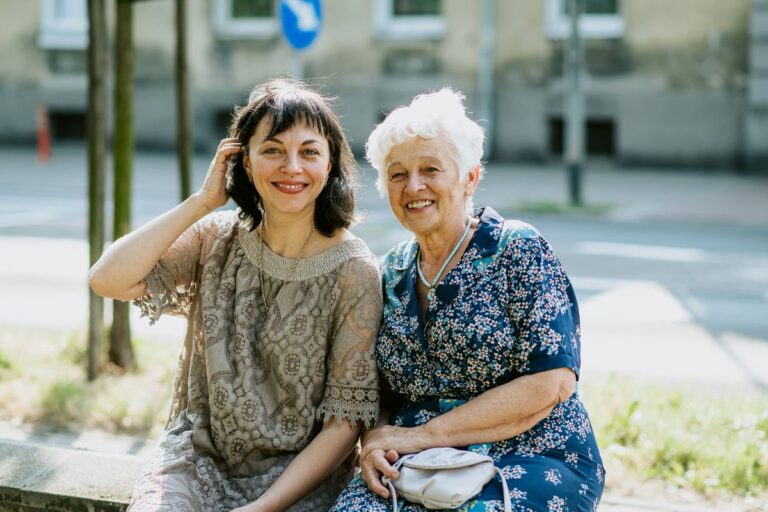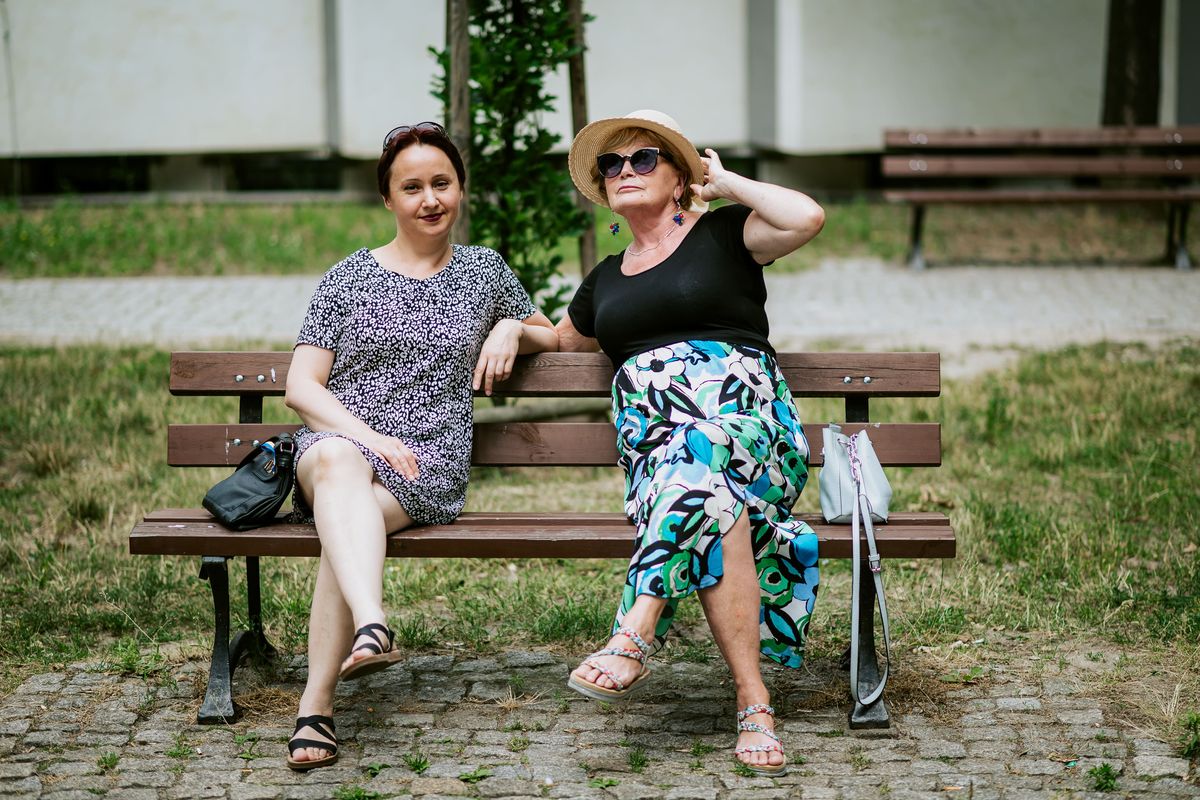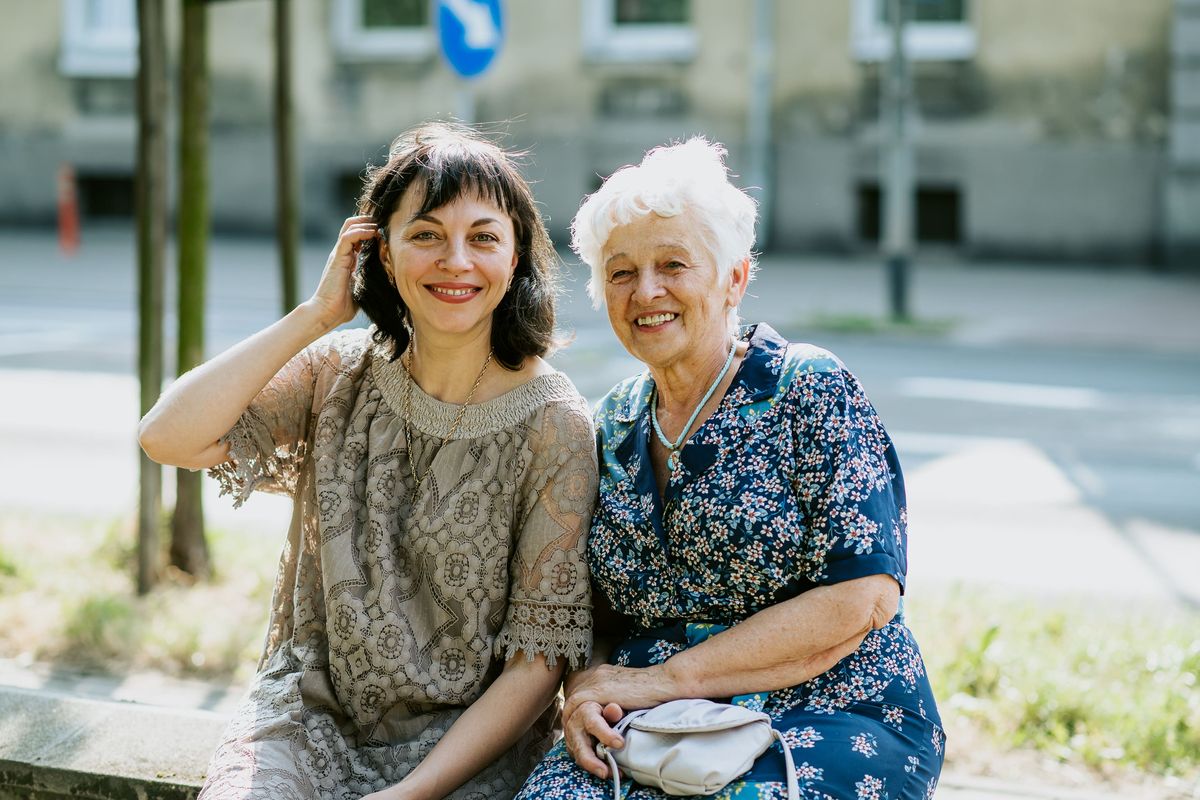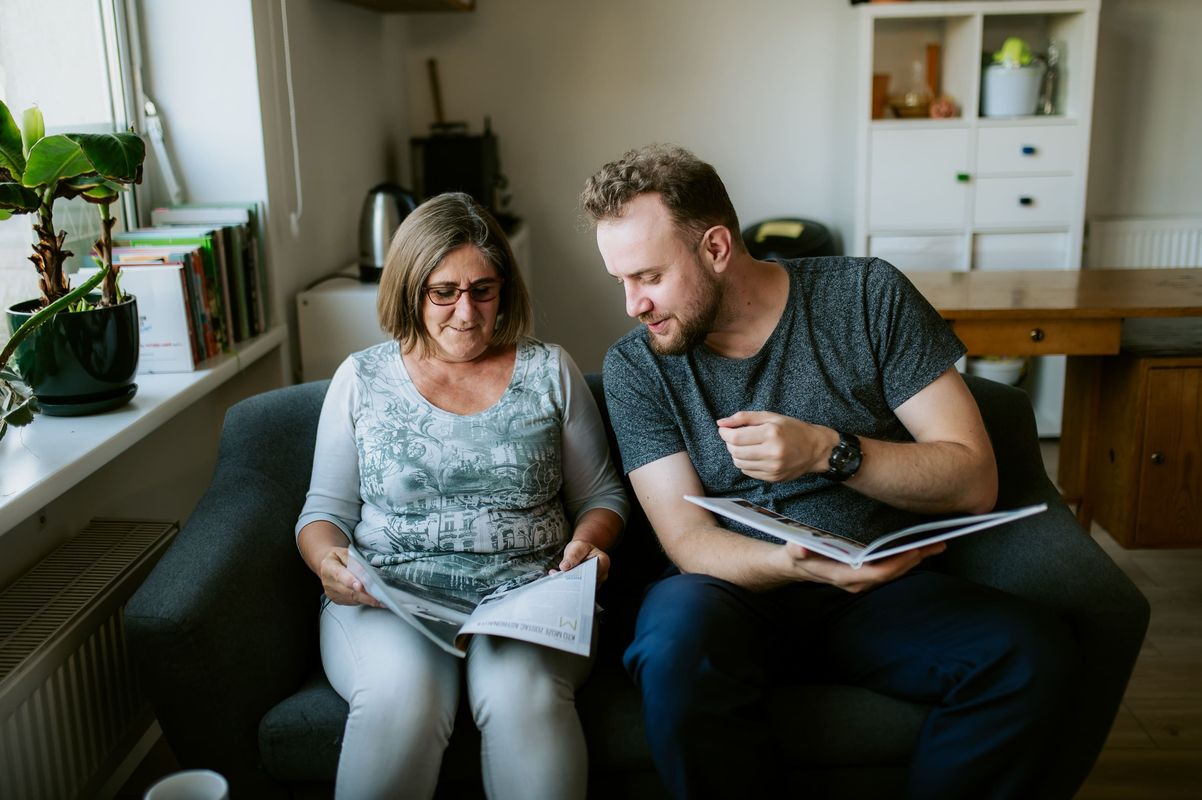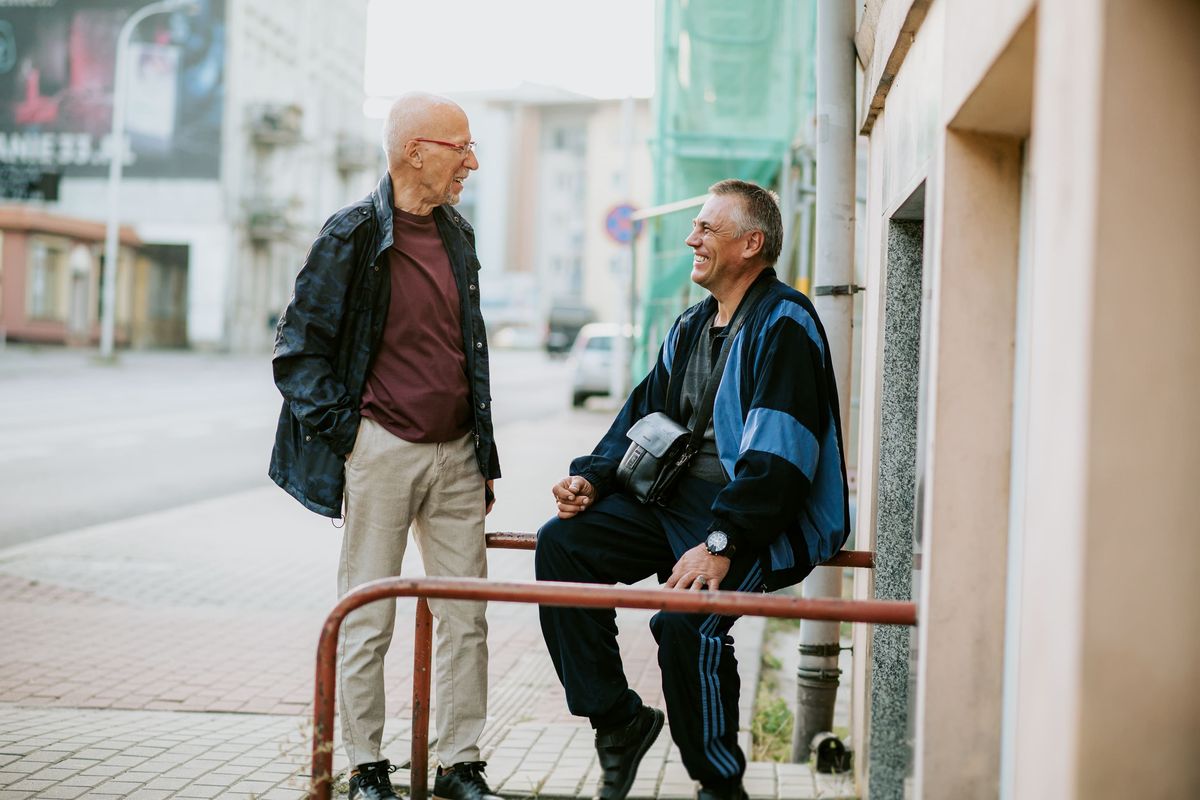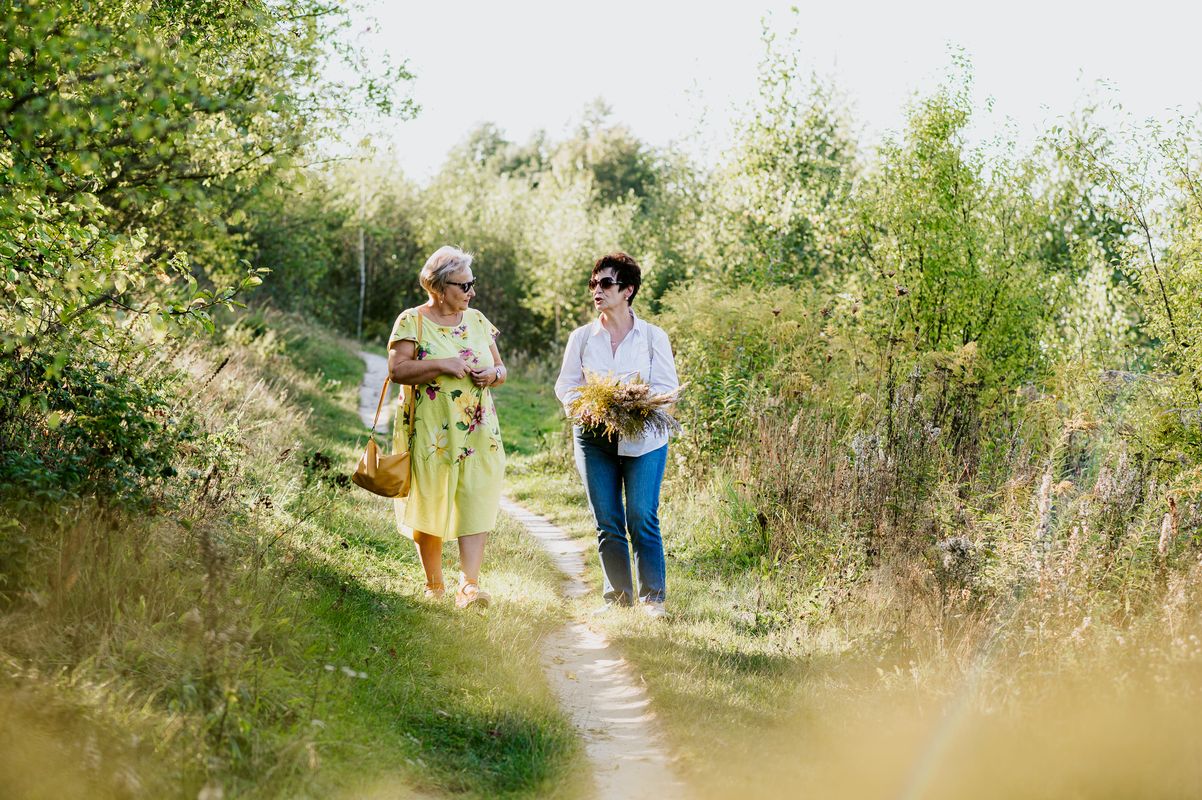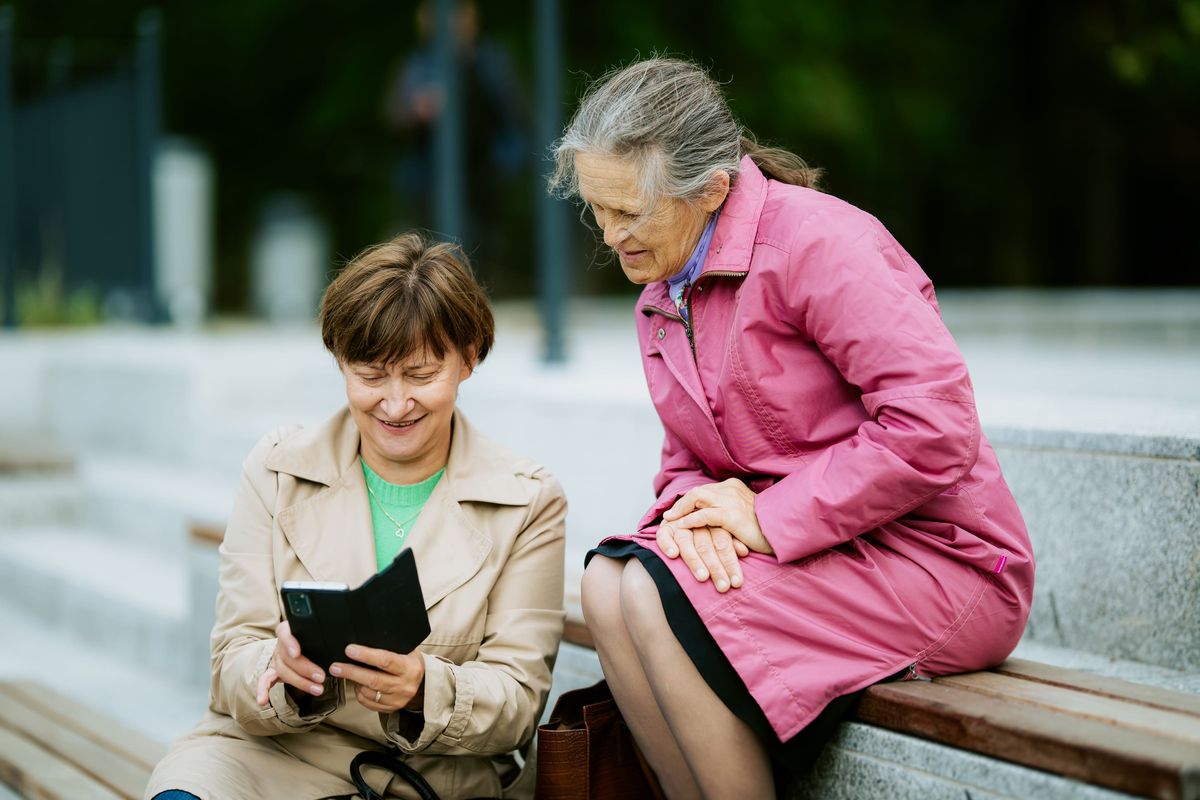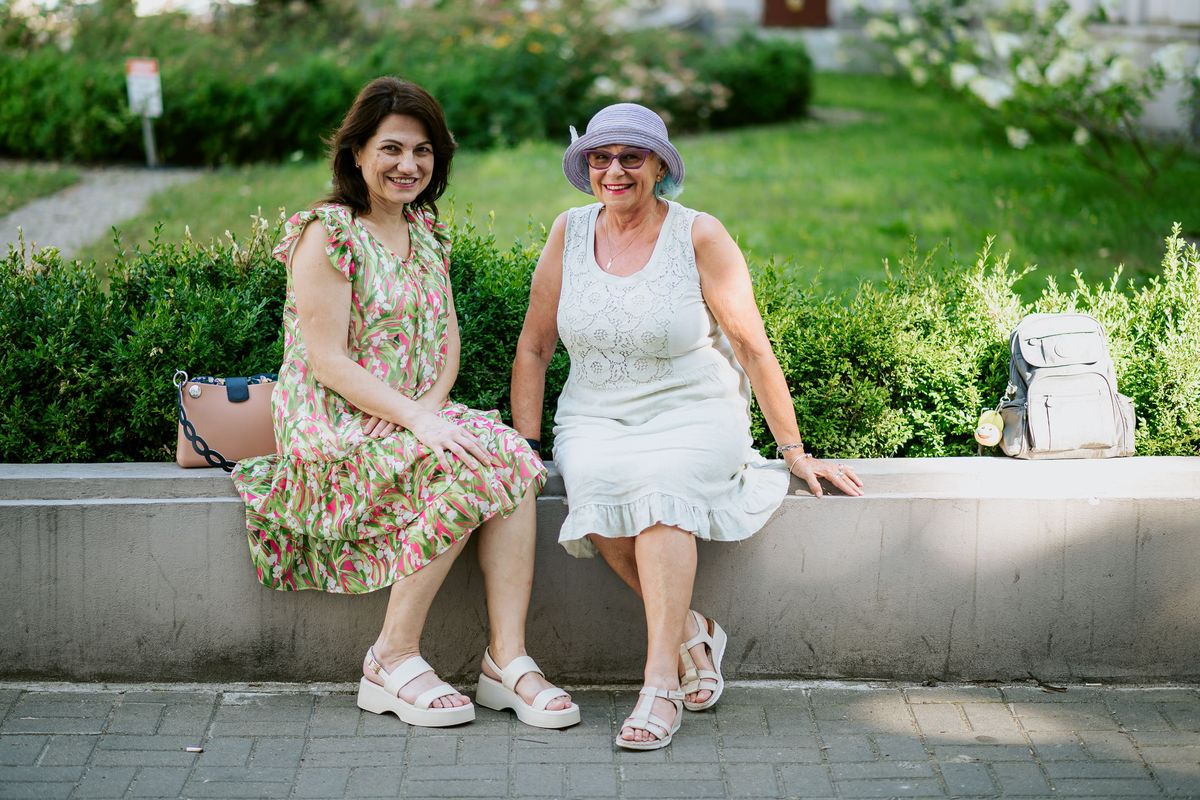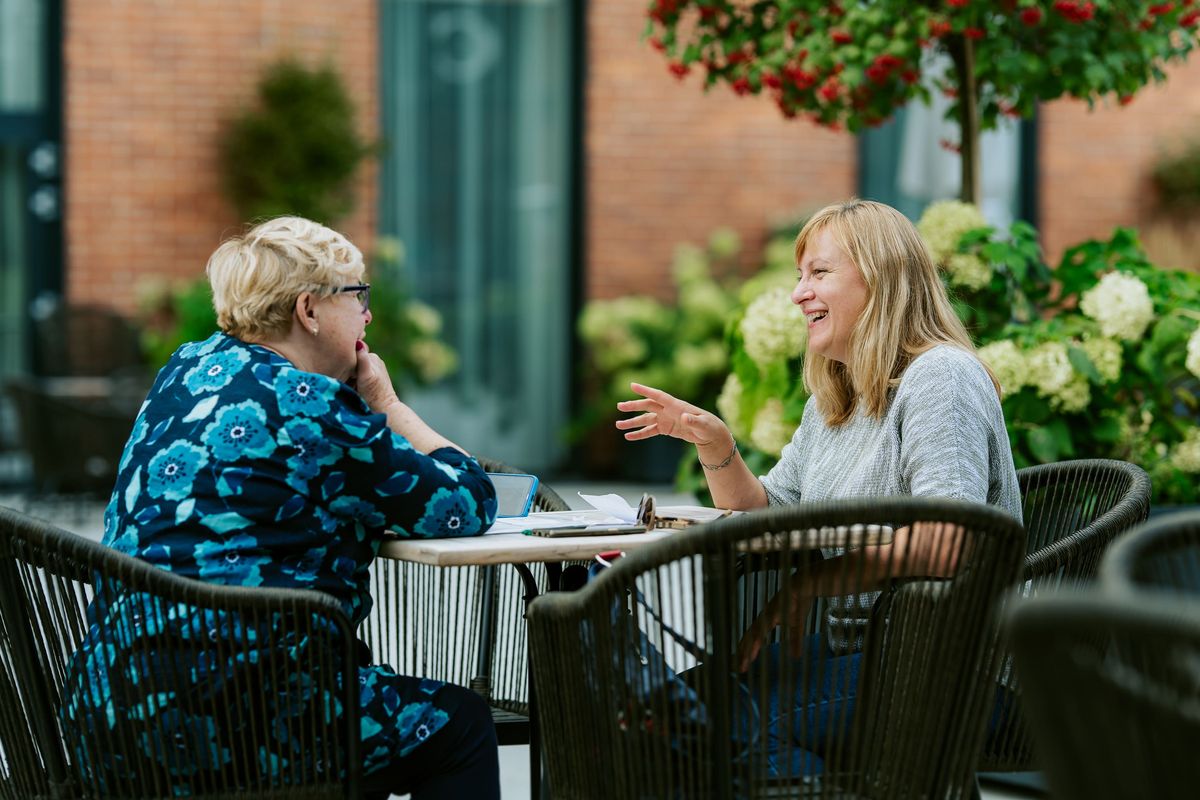Project: Poland for beginners and advanced – pass it on!
Area 2. Promoting social diversity and preventing exclusion
After Russia launched a full-scale invasion of Ukraine two years ago, hundreds of thousands of people fleeing the war came to Poland. Organisations have taken action to support the refugees. One of them is ‘Poland for Beginners and Advanced – pass it on’ – the project implemented by the Society of Creative Initiatives “ę” and the Polish Migration Forum.
– “The most important thing that people with refugee and migrant experience need when they find themselves in a new country is, of course, the language,” says Marta Białek-Graczyk, president of the Society of Creative Initiatives “ę”.
The ‘Poland for beginners and advanced – pass it on’ project, carried out jointly with the Polish Migration Forum, aims to improve the language skills of people who come to Poland looking for a better life or fleeing war. It began in 2019, in order to tap into the huge potential inherent in older people, with whom the Society of Creative Initiatives “ę” has been working for a long time. So, thanks to this previous experience, when Russia’s full-scale invasion of Ukraine began on 24 February 2022 and thousands of people were arriving in Poland, the need for support was quickly addressed.
– “We announced that if there were organisations or institutions in different towns that would like to do something like this in their area, we would provide training and workshops for both coordinators and volunteers. There was a lot of interest, and the project was implemented in eleven localities,” Marta Białek-Graczyk says.
The immediate response was also possible because the ‘Poland for Beginners and Advanced – pass it on’ project is very simple in its essence and, therefore, easy to replicate. It is based on creating pairs, with a senior from Poland on one side and a person with refugee experience on the other. Once the first contact has been made, the pairs meet regularly to have a conversation. There are more than one hundred and twenty pairs across Poland.
– “People who have approached us have said that it is strange that they had not thought of combining activities for older people with those for refugees. Our project can be permanently integrated into the organisation’s activities, without the need for any financial resources. But we can use the enormous potential of both groups, who can give a lot to each other,” explains Marta Białek-Graczyk.
Quick overcoming of initial barriers
While the project concept itself is simple, not everything goes always perfectly and smoothly. Kalina Michocka, coordinator of the Neighbourhood House activities in Kalisz, admits that while the people from Ukraine mainly needed to concentrate on learning the language, in the case of older people a moment’s thought and consideration was needed.
– “There were no problems with finding volunteers, but one of the eleven pairs broke up. On the level of the relationship itself, everything was fine, but after a few weeks one of the volunteers resigned because her life situation had changed significantly. However, she immediately found a ‘replacement’, i.e. her friend Irena, who quickly took a liking to Olga and they conversed regularly until the end of the project,” says Kalina Michocka.
She adds that resignation is an option, as the whole thing is based on voluntary work and no one signs a detailed, binding contract. She tries to remind all participants that they can always come to her with problems, and asks how contacts are going. Meetings have also been organised in a larger group, so that everyone can get to know each other a little better and feel more confident.
In Wodzisław Śląski, it was initially more of a challenge to find Ukrainian people who wanted to take part in the project. Edyta Mężyk recalls that the thing that helped was a meeting with parents, which was organised by a teacher from Ukraine who explained exactly what the project was about.
– “There were about a thousand people from Ukraine in our city, so it would seem that they would immediately be willing and eager to participate. However, I think that their initial fears were simply due to the fact that they didn’t feel confident in our country and probably needed a while to get to grips with the most urgent matters,” recalls Edyta Mężyk.
– “Fortunately, any barriers usually disappear at the first meeting. People smile at each other, exchange a few sentences and then great things start to happen,” adds Marta Białek-Graczyk.
Not just language
The ‘Poland for Beginners and Advanced – pass it on’ project was not just about two people meeting and talking to each other from time to time. The Polish seniors became deeply involved in helping in every possible aspect of life. From support in obtaining documents, to driving around and doing paperwork together, to recommending dentists, for example.
– “One senior lady had friends in the office, so she was able to enquire about things like housing or school. In fact, the project allowed many people from Ukraine to start living a normal life in our country much more quickly,” says Marta Białek-Graczyk.
Over time, of course, there were more opportunities to do more down-to-earth things together. In Wodzisław Śląski, the seniors were recruited from the Volunteer Club which operates as part of the University of the Third Age. Within its framework, there is also, among other things, a handicraft club, whose meetings were attended by a woman from Ukraine, together with ‘her’ senior. In another town, a lady from Ukraine mentioned at one point that she missed the garden she had at home. It quickly turned out that one older person could invite her to visit and they could look after the plants together.
– “These contacts obviously bring mutual benefits. Poles get to know another culture, have new people for interesting conversations, especially since it’s all very intergenerational, as people from Ukraine are usually around 30-50 years old,” says Edyta Mężyk.
Relationships stand the test of time
The most important aspect of the project, however, is that even when it ends… it continues. Many pairs met more than once a week, so strong bonds and relationships were formed that can last for years to come. Zenia came to the Neighbourhood House in Kalisz one day. As Kalina Michocka recalls, he didn’t speak a word of Polish at the time, but he intuitively felt that a lot of cool things were happening there.
– “After he befriended Teresa, he learned to speak our language very well. And Teresa is now helping to arrange all the paperwork so that Zenia’s mother can come to Poland, because she wants to meet her,” Kalina Michocka is pleased to say.
In Kalisz, two pairs also met together, which was due to the fact that a couple from Ukraine was involved in the project. Natalia was paired with Basia, and the latter involved her friend Marek in everything, who ‘took care’ of Andrzej, Natalia’s husband.
– “Basia helped us a lot, not only by giving us information, but by inviting us to her house and spending time with us. This made us feel much more comfortable in Poland. Recently we were at her house for a bigger party with her friends and afterwards I told Basia that I was even starting to think in Polish now,” Natalia recalls.
– “There are no taboos for us in conversation, we get along very well. I am glad that I took part in the project, because I can say that now I have a new friend,” adds Basia.
In Wodzisław Śląski, Elżbieta and Tatiana made a pair. The former was initially concerned whether the reaction of people from Ukraine to the project would be good, as they were coming straight from war. However, her doubts were quickly dispelled and Elżbieta is very pleased to have met Tatiana, of whom she speaks in superlatives.
– “Although she is an incredibly life-experienced person, including family, Tatiana is also very resourceful, constantly wanting to do something and trying to provide everything she can for her sons. In fact, she only needed a little support in everything, and her biggest success is probably that she managed to get a communal apartment. She filled in all the applications herself and submitted them to the office. And I helped her to furnish the flat,” says Elisabeth.
– “Now I am at peace with my children’s future and my own. And Elżbieta is like a mother to me,” adds Tatiana.
– “All this shows how little it needed to do something for another person. I think that is where the beauty of our project lies. What pleases me most is that most of these contacts will turn into lasting relationships through which both people will develop,” Marta Białek-Graczyk concludes.
An additional outcome of the project is a publication – the “How to organise conversations between people 60+ and those with migrant or refugee experience ” guidebook, making it even easier to replicate the idea.
When replicating the project, please remember to indicate in materials and on websites that it is inspired by the ‘Poland for Beginners and Advanced – pass it on” project implemented by the Society of Creative Initiatives “ę” in partnership with the Polish Migration Forum.
The article has been published in the non-governmental organisations portal ngo.pl.
Author: Jędrzej Dudkiewicz
The project’s website: www.polskapodajdalej.org
The guidebook ‘How to organise conversations between people 60+ and those with migrant or refugee experience’
More information about the project >>
Photos: Tomasz Bąk
